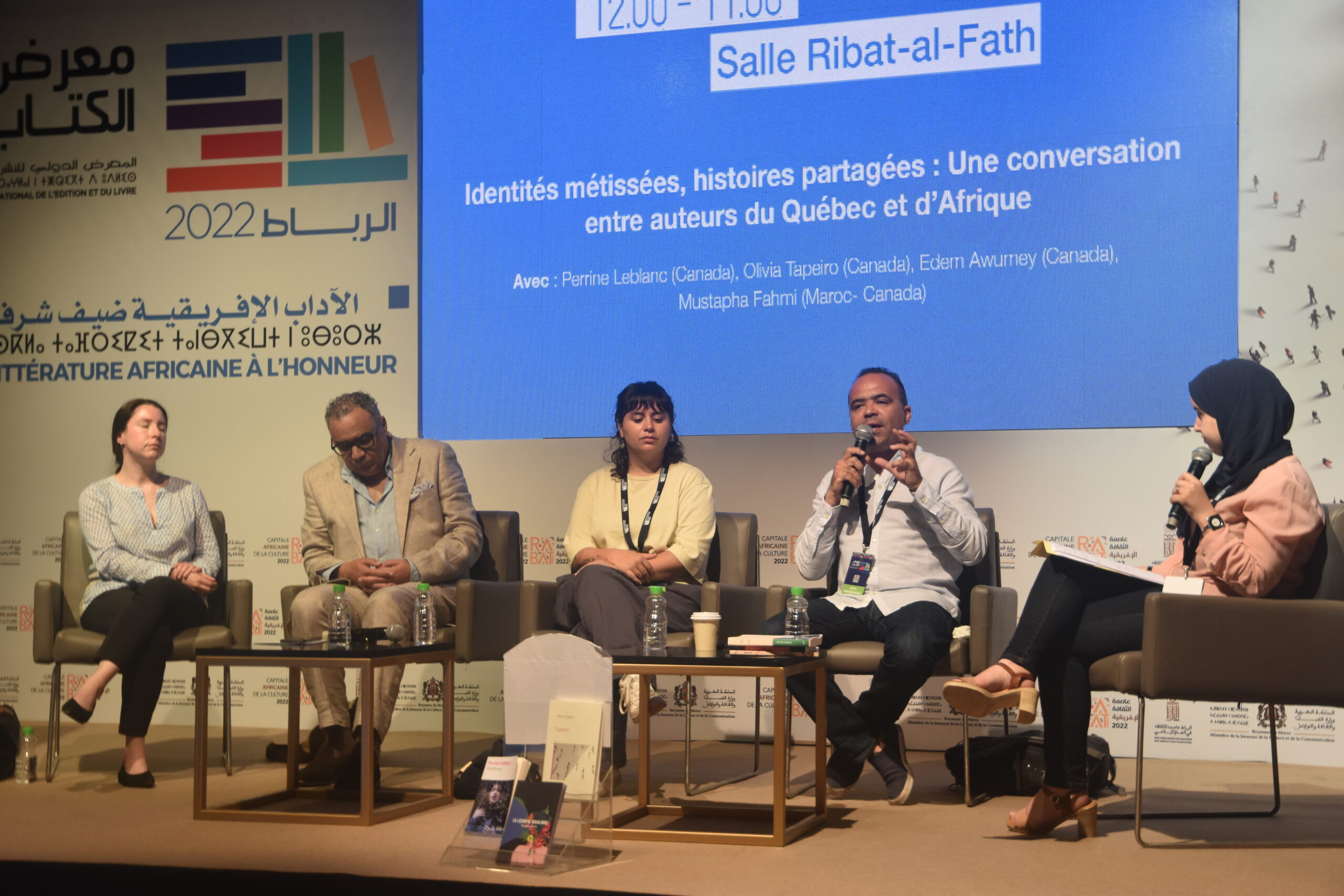
“The enemy is someone who hasn’t yet told us his story, because once he does, he’s no longer the enemy, he’s just another us.” Mr Fahmi

“The enemy is someone who hasn’t yet told us his story, because once he does, he’s no longer the enemy, he’s just another us.” Mr Fahmi

“The enemy is someone who hasn’t yet told us his story, because once he does, he’s no longer the enemy, he’s just another us.” Mr Fahmi
A literature round table was held on the 9th of June at Rabat Al-Fath hall, Siel. This roundtable of Quebec and African authors and publishers focused on the theme of identity, creation and history in this period of social upheaval and geopolitical changes. It featured 4 writers, 3 of them are Moroccan-Canadian writers.
Olivia Tapeiro, told us all about how she started her carrier when she was still a student, explaining that a writer’s relationship with books changes once published, but there is this gratitude that remains unchanged. Olivia declared that she is leaning more towards poetry lately, pointing out that all her writings have a poetic spirit. Her lastest book is multi-genre;
it’s the first time that such book gets nominated for Canada’s most prestigious book prize. Olivia respects people who find comfort in already established genres but she prefers merging between them. “Multi-genre books reflect my real position in this world” concluded the writer.
Mustapha Fahmi walked us through his carrier as a Canadian Moroccan teacher of English literature specialized in Shakespeare, who also teachers french and publishes his books and essays in 3 languages, French English and his native language, Arabic. His book, “Juliette’s Promise” is according to him, a series of philosophical deaths. He explained that philosophy cannot be taught like other subjects, we should encounter it to learn through human experiences. “Literature helps us multiply our perspectives” said Mr Fahmi. Lastly, he answered a question on whether the fact that he is trilingual affects his writings or not. He agrees that it does but insists that he tries his best to strip his writing from cultural influence so that he’d be engaged towards a general human approach that is not limited.
“The enemy is someone who hasn’t not yet told us his story, because once he does, he’s no longer the enemy, he’s just another us.” Mr Fahmi.
